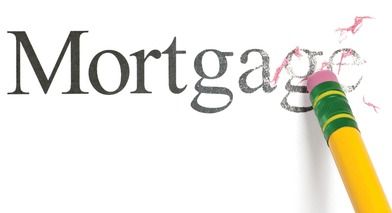
By Jennifer Riner of Zillow
In a highly competitive rental market, large property management (PM) companies often meet prospective tenants eager to submit their applications for approval. Single-family homeowners looking to lease space in their primary residences or individual investment properties aren’t as lucky. Typically, word-of-mouth marketing best suits small-scale landlords, increasing the probability of renting to close family members or friends.
However, word-of-mouth marketing isn’t the best solution for all circumstances. Some rental property owners need tenants sooner than the friends in their close networks need rentals. Or, investors and homeowners may prefer to do business outside of their inner circles. In these cases, deliberate upgrades and effective advertising are better marketing strategies.
The following tactics render all rental homes highly appealing to lessees, regardless of ownership size or building type.
Modernize the Space
Renters don’t receive returns on investments (ROI) when their leased homes sell, so the chances of them performing cosmetic upgrades on their rentals, even if allowed by their lease terms, are slim. Rather than look for inexpensive properties with potential, renters gravitate toward move-in ready spaces. Therefore, private owners leasing their homes can captivate prospective tenants by transforming dark, dated houses into bright and modern abodes.
Review other apartments on the market and their accompanied aesthetics – specifically equal-sized units at similar price points. For instance, the median monthly rent for single-family properties in Atlanta is $1,000. Alternatively, the median sale price for single-family homes is $289,000. A three-bed, two-bath home listed for $289,900 has an estimated mortgage of $1,459 including taxes and insurance, assuming 20 percent down and a 4 percent interest rate on a 30-year fixed-rate loan.
Regardless of the competition, don’t go overboard with renovations that limit resale ROI. Private owners sometimes lack the budget to perform complete overhauls on their properties since their rental incomes likely subsidize their monthly mortgage costs. Landlords should limit luxurious upgrades and amenities in their rentals, unless renovations were made prior to lease dates. While beautiful spaces attract and retain lessees, the cost of rent probably won’t reimburse the total cost of upgrades – at least not for an extended period of time.
Not all upgrades are going to break the bank, either. Replace carpet or consider installing linoleum floors for a sleek, clean look. Apply fresh paint to walls after each tenant vacates to eradicate old odors and mask moving damages. Stage homes appropriately, ensuring furniture choices fit properly without spaces appearing cold, or alternatively, cluttered. Finally, thoroughly clean rentals before showings. Albeit temporary, lessees require the same standard of living as potential new homeowners.
Take High-Quality Listing Photos
Attractive listing photos are fundamental factors of real estate marketing. After all, many renters and owners use online services to scout properties before viewing them in person. First impressions are important, and unappealing images can compromise the renting success of high-quality units. For captivating photos, remove date and time stamps. Similarly, avoid using photos more than a year or two old – especially if spaces have undergone recent upgrades. Snap multiple photos of each room, so interested parties have full radial views of apartment and home layouts. If possible, use a wide-angle lens to capture the largest possible shot, eliminating the need for multiple, cramped images. Photos should be large enough for clients to see details without enhancing, which often leads to distortion and blur. Take listing photos around dusk to achieve the best possible natural lighting and use interior lights to complement the warm hues of a setting sun.
Modernizations and quality advertising are key elements in drawing applicants toward one property over another. Pricing appropriately, maintaining property condition and establishing good rapport keeps tenants renting long-term, or at least recommending properties to help eliminate vacancies in the future.


